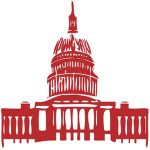Phone calls and letters from physicians significantly cut future emergency visits
The meteoric rise in healthcare costs in the United States is in part attributed to the rise in emergency department (ED) visits for primary care treatable illness and other low acuity visits. These visits place additional strain on EDs already overcrowded from boarding admitted patients and places a burden on emergency physicians (EPs) to function with fewer rooms, fewer support staff, and fewer resources. As a result, quality of care suffers with a
significant increase in costs and wait times while corresponding to a decrease in patient and provider satisfaction .
To date, interventions attempting to reduce ED utilization have utilized non-physicians (care managers and nurses) to provide generic non-medical information about alternative care options; they have had variable success. The current study – a multi-facility, randomized control trial – aimed to evaluate the impact of a brief educational phone call by an EP and/or mailed information following an ED visit on subsequent 6-month ED utilization rates
in low-acuity adult patients.
The study found statistically significant decreases in ED use by 22% among patients over 65 years of age who received follow-up phone calls and by 27% among patients under 65 years receiving a follow up mail.
Targeted educational interventions have had varying effectiveness as they are subject to a variety of barriers including the complex interplay of geographic, cultural, and socioeconomic factors. Another important limiting factor of any communication is the receiver. They may be variably receptive to the information provided or may variably change their behavior. Although compliance with treatment care plans is far from optimal in health
care, patients still want to hear a lot of the information directly from their physician.
This same group of researchers conducted another study which found a significant reduction in future ED utilization when EPs made post-visit phone calls. However no change occurred
when emergency nurses made similar contact, suggesting that patients were perhaps more receptive to receiving information from EPs.
While “decompressing” certain aspects of health care like ED utilization, this intervention could potentially place increasing stress and demands on EPs to make these follow up calls. Who pays for the physician's time? Isn't increasing the demands on EPs to do more and more with less and less time what’s already causing toxic stress in the healthcare system in the first place?
PMID: 29851439
ARTICLE: Patel PB, Vinson DR, Gardner MN, et al. Impact of emergency physician-provided patient education about alternative care venues. The American journal of managed care. Published May 2018.
Abstract
OBJECTIVES: Interventions that focus on educating patients appear to be the most effective in directing healthcare utilization to more appropriate venues. We sought to evaluate the effects of mailed information and a brief scripted educational phone call from an emergency physician (EP) on subsequent emergency department (ED) utilization by low-risk adults with a recent treat-and-release ED visit.
STUDY DESIGN: Patients were randomized into 3 groups for post-ED follow-up: EP phone call with mailed information, mailed information only, and no educational intervention. Each intervention group was compared with a set of matched controls.
METHODS: We undertook this study in 6 EDs within an integrated healthcare delivery system. Overall, 9093 patients were identified; the final groups were the phone group (n = 609), mail group (n = 771), and matched control groups for each (n = 1827 and n = 1542, respectively). Analysis was stratified by age (<65 and ≥65 years). Patients were educated about available venues of care delivery for their future medical needs. The primary outcome was the rate of 6-month ED utilization after the intervention compared with the 6-month utilization rate preceding the intervention.
RESULTS: Compared with matched controls, subsequent ED utilization decreased by 22% for patients 65 years or older in the phone group (P = .04) and by 27% for patients younger than 65 years in the mail group (P = .03).
CONCLUSIONS: ED utilization subsequent to a low-acuity ED visit decreased after a brief post-ED education intervention by an EP explaining alternative venues of care for future medical needs. Response to the method of communication (phone vs mail) varied significantly by patient age.
EMRA + PolicyRx Health Policy Journal Club: A collaboration between Policy Prescriptions and EMRA
 As emergency physicians, we care for all members of society, and as such have a unique vantage point on the state of health care. What we find frustrating in our EDs - such as inadequate social services, the dearth of primary care providers, and the lack of mental health services - are universal problems.
As emergency physicians, we care for all members of society, and as such have a unique vantage point on the state of health care. What we find frustrating in our EDs - such as inadequate social services, the dearth of primary care providers, and the lack of mental health services - are universal problems.
As EM residents and fellows, we learn the management of myocardial infarctions and traumas, and how to intubate, but we are not taught how health policy affects all aspects of our experience in the ED. Furthermore, given our unique position in the health care system, we have an incredible opportunity to advocate for our patients, for society, and for physicians. Yet, with so many competing interests vying for our conference education time, advocacy is often not included in the curricula.
This is the gap this initiative aims to fill. Each month, you will see a review of a new health policy article and how it is applicable to emergency physicians.



